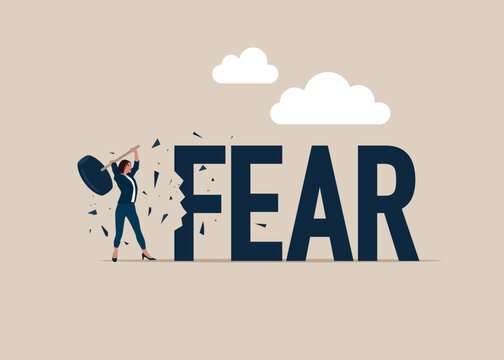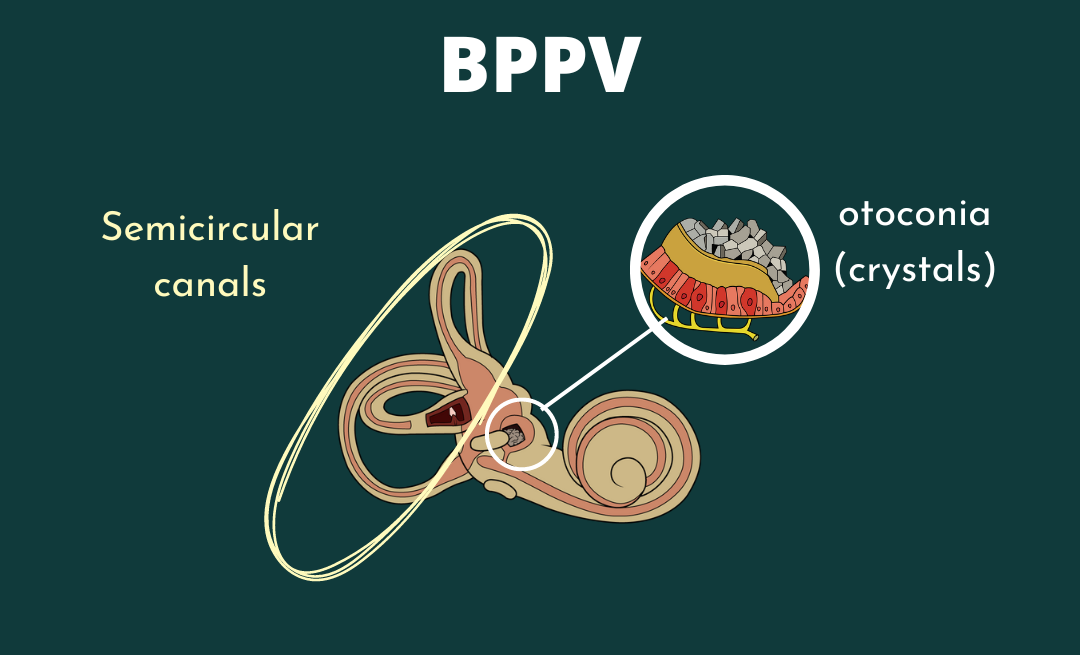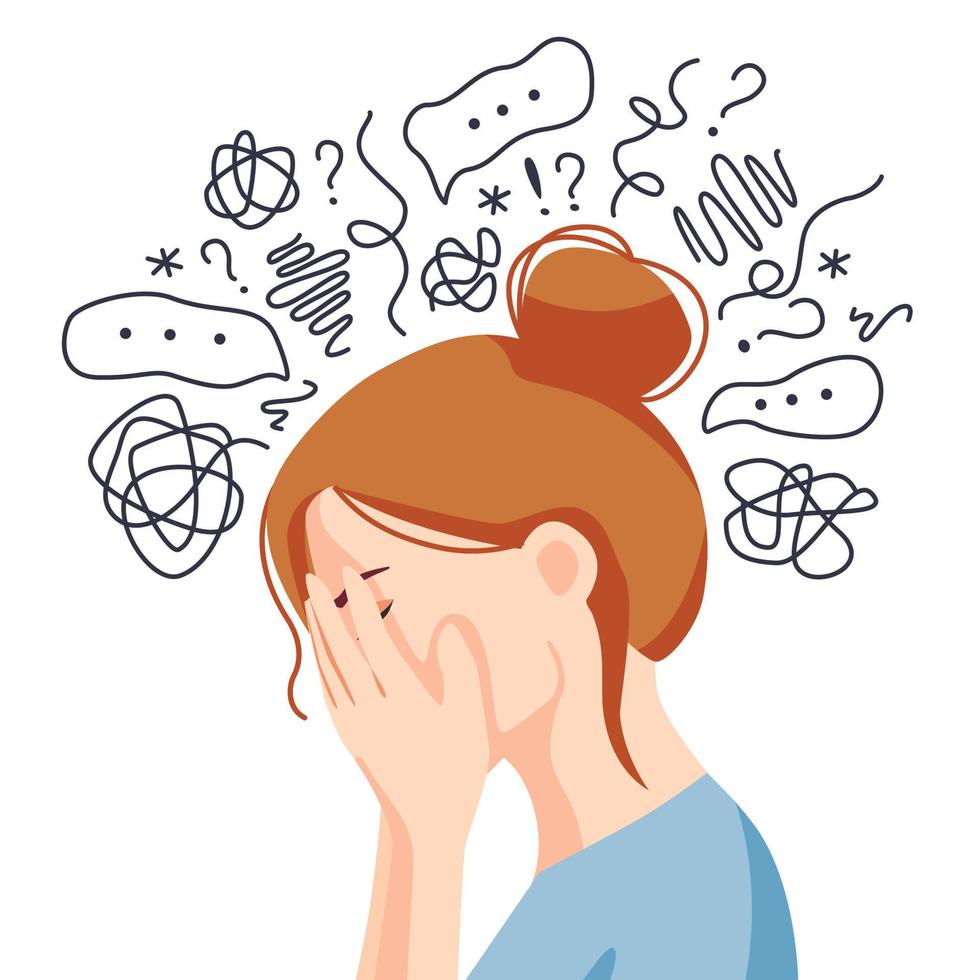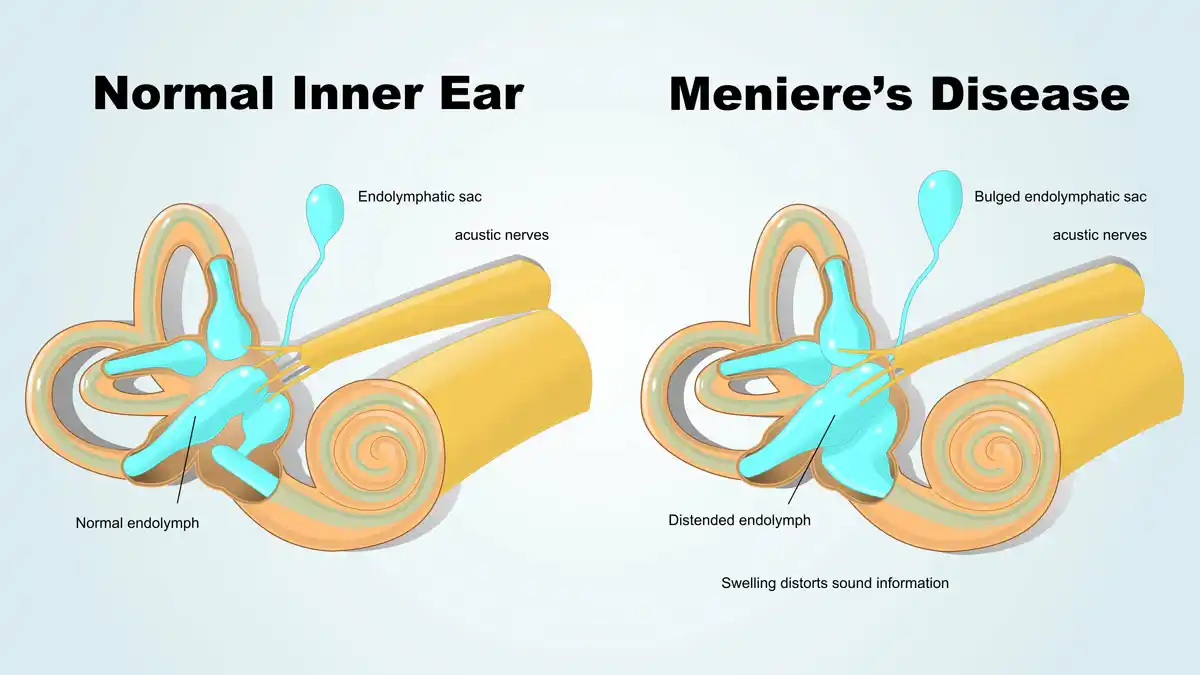Experiencing dizziness, especially chronically, is life altering and traumatic. This can lead to people with vestibular disorders to develop or exacerbate anxiety and depression. The unpredictability or constant feeling of symptoms can cause severe anxiety, and the social isolation and loss of normal activities can cause depression.
Unfortunately, the emotional response to symptoms while living with a vestibular disorder (anxiety and depression) can actually worsen symptoms. Emotional triggers can cause a physiological arousal and increase feelings of dizziness, vertigo, and other vestibular symptoms. We call this the dizzy-anxious cycle. Dizziness causes fear and anxiety which leads to fight or flight which leads to more dizziness. That leads to feeling like you can’t do anything which leads to depression and unwillingness to try anything to help yourself, which leads to more and chronic dizziness. It’s a vicious cycle!
So what do we do about anxiety and depression caused by dizziness? The good news is that there is hope of ending that dizzy-anxious-depressed cycle, and feeling better.

Psychological Treatment:
Working with a certified therapist/ psychologist/ psychiatrist can provide support and validation of symptoms. Many work with patients in CBT, or cognitive behavioral therapy, to help them sort through ruminating thoughts and worrying about symptoms. They can also help with stress management, acceptance of the condition, and giving a safe space for you to share all of your thoughts and feelings.
You may also want to consider a practitioner that uses somatic and mindfulness techniques to incorporate into your treatment so it is a multifaceted approach to your overall mental health and specific to the dizziness you feel in your body.
Nervous System Regulation:
The dizzy anxious cycle is directly related to the nervous system misfiring. When we are in a heightened state of stress for too long, our nervous system becomes dysregulated and can actually cause more anxiety and dizziness. The same is true for depression—the nervous system is caught in a functional freeze, where it shuts down because it can’t handle anymore stress. Regulating the nervous system is essential for treating dizziness. This can be done through grounding, breathing techniques, sleep, meditation, exercise, spending time with loved ones, and going outside in nature.
Medication:
Certain medications that are prescribed for vestibular disorders such as benzodiazepines, SSRIs, antidepressants, and beta blockers are all also prescribed for anxiety and depression. Because these disorders are so strongly connected, many people find that getting on one of these medications can help with their dizziness, as well as relieving their anxiety and depression. Working with a doctor to find what meds work best for you is essential, because what works for someone might not work for you!

Getting Out and Facing Fears:
The hardest but perhaps most crucial part of dealing with anxiety and depression caused by a vestibular disorder is to get out and face your fears. Taking small, incremental steps over time will help you get back on your feet and return to a normal lifestyle. For example, if you are afraid of going to the grocery store alone, start by going to the parking lot and sitting there for five minutes. Then go inside for one minute. Then increase to three and so on until you can go back to the store normally again. Facing fears is also a great way to build resilience, help you feel stronger, and gain confidence in yourself once again. The only thing that should be avoided with dizziness is avoidance itself.
Anxiety and depression with a vestibular disorder is a challenge that many vestibular warriors face. It’s not something that has to least forever, and there is hope to break those awful cycles. By getting professional help, regulating your nervous system, finding the right medication, and facing your fears, you can conquer your dizziness and the anxiety and depression that comes with it. Remember that in Vestibular Group Fit, we have a whole module and tons of resources to help you get through it.
If you have thoughts or feelings of suicide, please reach out to the suicide hotline. Call or text 988.






